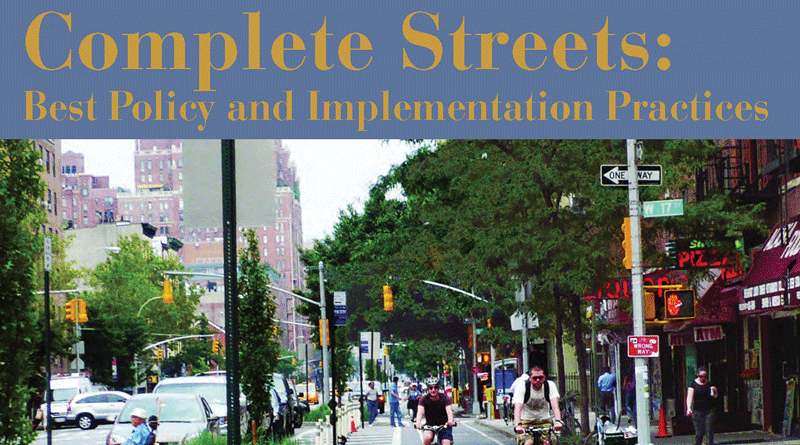Complete Streets: Best Policy and Implementation Practices. PSA Report Number 559. (2010)
Edited by Barbara McCann and Suzanne Rymne. American Planning Association
The APA, in conjunction with the National Complete Streets Coalition, recently released a Planning Advisory Service report on complete streets titled Complete Streets: Best Policy and Implementation Practices. Chapter five “Making the Transition: Planning for Change and Addressing Problems,” which is available online, explores strategies communities are using to implement complete streets policies and the challenges they have encountered as they do so. The chapter discusses policy implementation, training planners, exception procedures, and jurisdictions’ shifts in transportation priorities.
The authors present case studies to illustrate strategies designed to transition from a car-oriented landscape to one that accommodates all road users. The case studies showcase small and large cities as well as state transportation authorities, highlighting tools used to implement complete streets policies. For example, performance measures help ensure communities meet their goals. A clear and equitable exceptions process makes a complete streets policy more politically palatable and provides a guide for planners. Public education has helped make complete streets policies successful for places like New Haven, CT.
The chapter also discusses problems communities have encountered while developing complete streets policies. Perhaps the biggest issue faced is that complete streets laws or resolutions are often not implemented. For example, many Oregon municipalities ignored the state’s 1971 bicycle bill until a 1992 court decision ruled that it must be applied to road projects. To ensure bills are enforced, some jurisdictions and agencies, such as Seattle, Chicago and the California Department of Transportation, have created implementation plans although these plans are exceptions rather than the rule.

